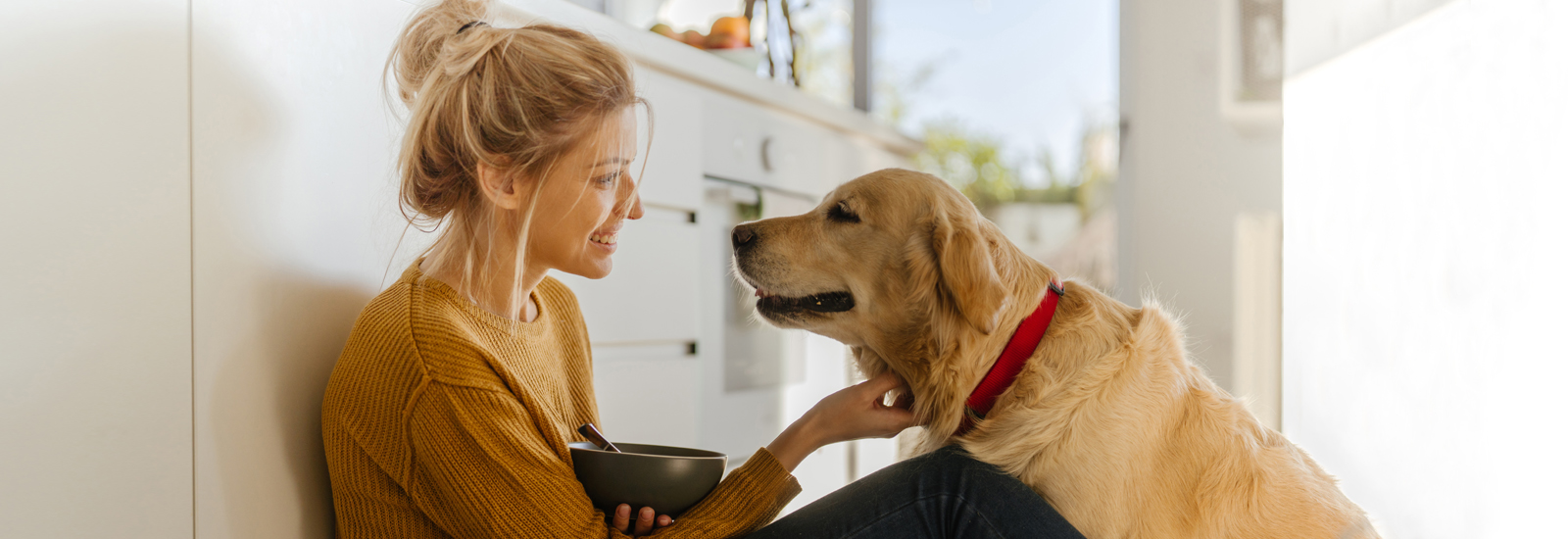Some dogs are not particularly fussy about what they eat. We should therefore make sure that they do not get hold of food that is bad for them. This includes, among other things, raw pork and garlic.
WHAT THINGS SHOULD A DOG NEVER EAT?
Toxic for dogs
Most dogs show great interest when something is being cooked in the kitchen. They should never be given any food at the table to prevent them from begging. In the kitchen, however, things occasionally fall onto the floor. This is why it is important to know what is good for the dog and what should be avoided.
These foods are not suitable for dogs:
- Raw pork:
Dogs love meat and it should form a major part of their diet. When pork is heated, as is the case with canned and dry food, you can feed it to your dog without concern. In its raw state, however, dangers can lurk: Raw pork can contain the Aujeszky virus. It is not dangerous for us, but for dogs an infection can be fatal! You should therefore avoid raw pork at all costs.
- Raw poultry
Eating raw poultry can also be dangerous: It can contain bacteria and parasites that can lead to diarrhoea and vomiting, among other things. To be on the safe side, you should therefore only feed pork (and preferably poultry as well) when it has been cooked.
- Garlic
Garlic is known to be very healthy for humans. Garlic does, however, contain sulphur compounds that can lead to the destruction of red blood cells (anaemia). This applies to raw and cooked garlic. You should therefore avoid feeding garlic to your dog.
- Raw potatoes and other members of the nightshade family (Solanaceae)
Raw potatoes, green tomatoes and aubergines contain solanine. In large quantities, the substance is also toxic for us humans. Especially in the case of potatoes, you should under no circumstances feed them to your pet in their raw state. Cooking destroys the solanine, which explains why potatoes are then very well tolerated by dogs.
- Bones
You should always be cautious with bones: This applies especially to long bones, like those found in duck and venison. Here there is a risk of splintering when chewed, which can cause injures to the dog’s throat. The risk is particularly high if the bones have been boiled or grilled, because they are then very brittle. Raw bones from veal, on the other hand, are well tolerated by dogs. However, ingesting too many bones can lead to bone faeces (constipation). For this reason, no more than 10 g of bones per kilo of body weight per day should be consumed.
- Chocolate
Normally, everyone should know that chocolate is not suitable for dogs. Because chocolate contains theobromine, which is toxic for dogs. The higher the cocoa content in chocolate, the higher the amount of theobromine it contains. Chocolate should therefore never be left lying around openly and also should not be used as a treat. Eating it causes digestive disorders, circulatory problems and, in the worst case, death. For small breeds of dogs such as Chihuahuas, one or two bars of chocolate are enough to cause poisoning.
- Avocado
This should never be part of a dog’s menu. Because avocados are so healthy for us humans, some people may consider adding them to their dog’s food. This is not a good idea, because avocados contain persin, which is poisonous for dogs. As a result, dogs may experience diarrhoea, vomiting, restlessness and breathing problems.
- Raisins, grapes and nuts
On a low living room table, raisins, grapes and nuts may be quite easy to reach for a dog. Because consumption is harmful, however, it is important to keep them out of its reach. Grapes and raisins can cause diarrhoea, vomiting and stomach cramps in dogs. With nuts, a distinction must be made: Hazelnuts and Brazil nuts as well as cashews can be given in small quantities. Unripe and fresh walnuts from a tree may contain a fungal toxin. Macadamia nuts contain the toxin amygdalin, which causes vomiting and fever in dogs.
What should you do if your dog has eaten something harmful?
If you catch your dog eating something that it is forbidden, you should observe it very closely. Under no circumstances should you attempt to make your pet vomit with any kind of home remedy. In the event of vomiting, diarrhoea, heavy salivation, trembling or spasms, you should immediately take your dog to a vet.
